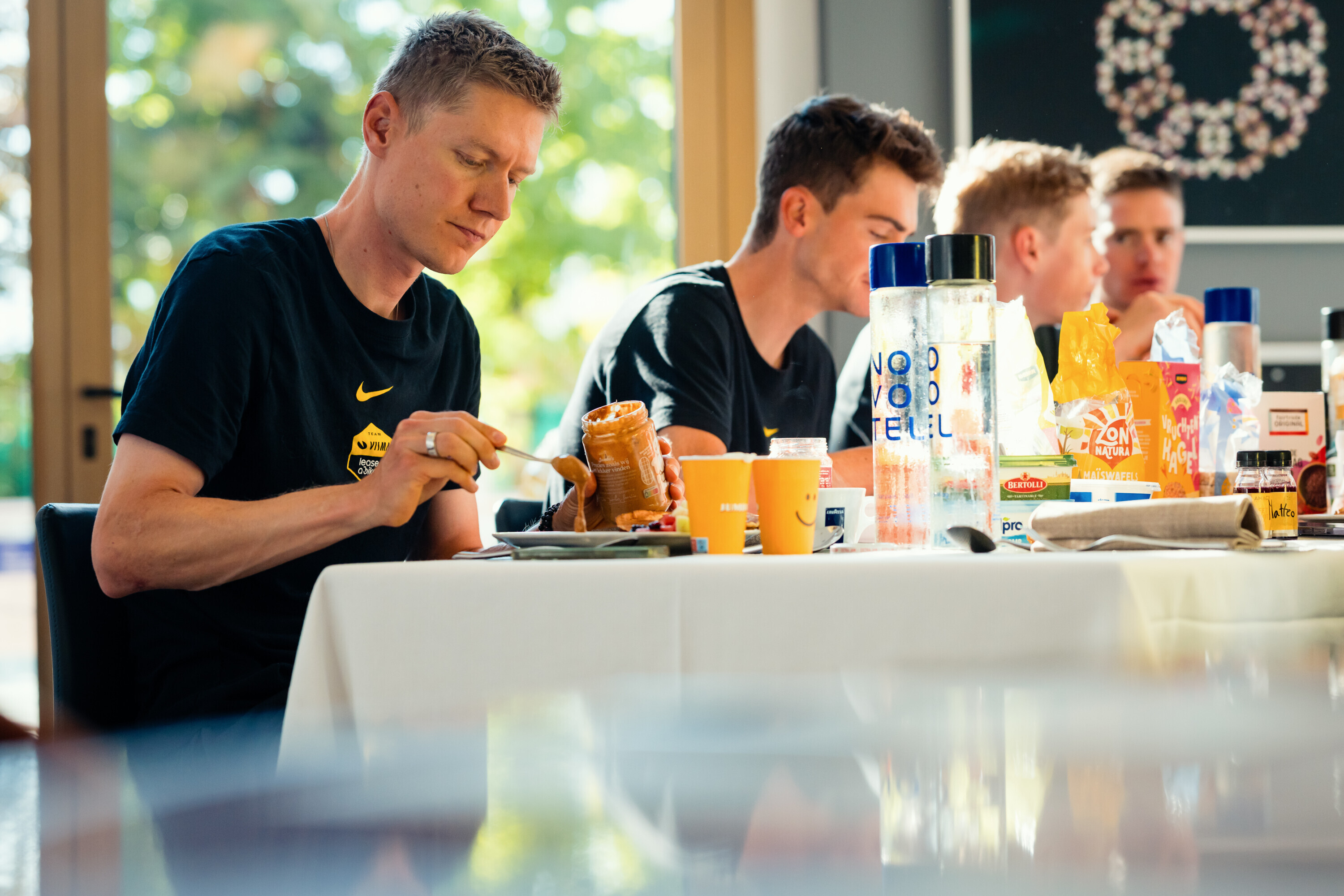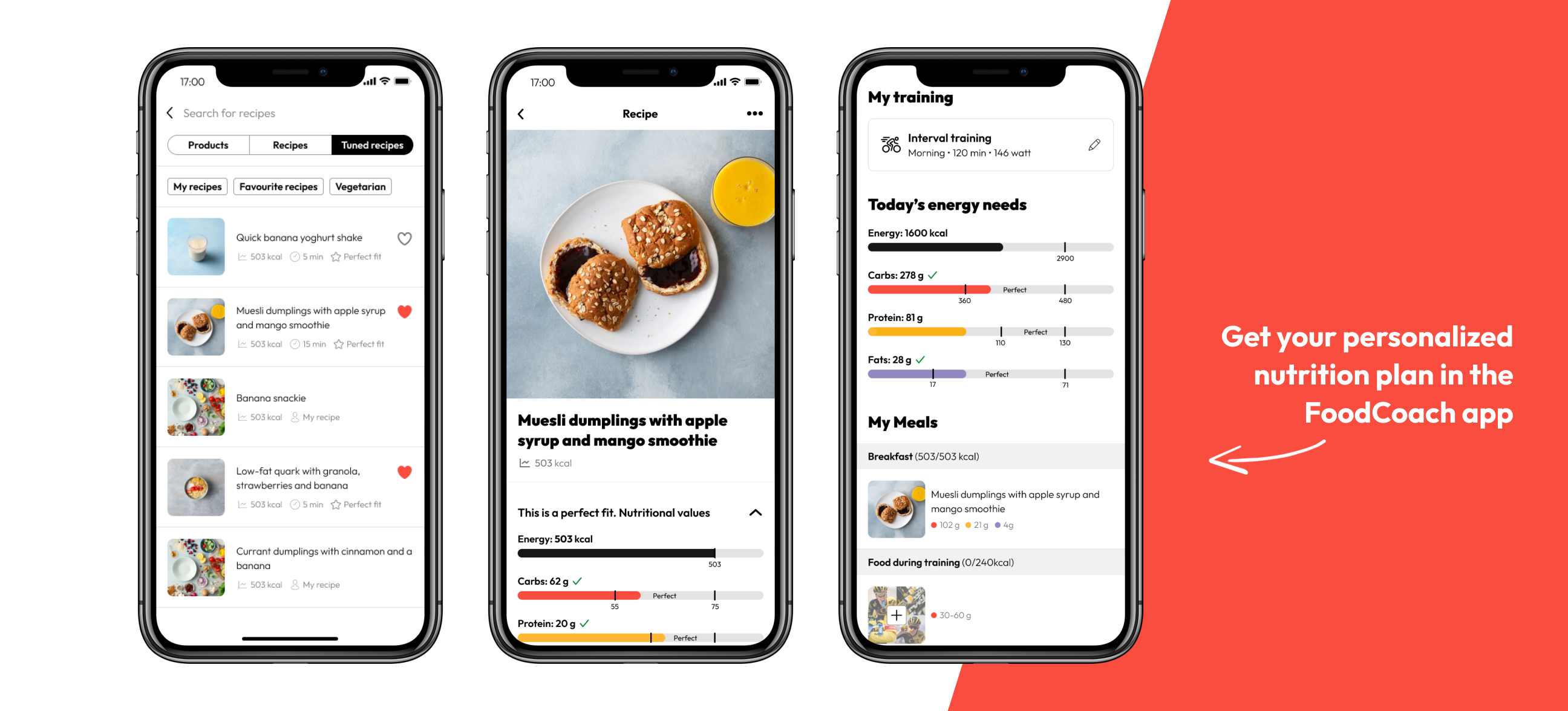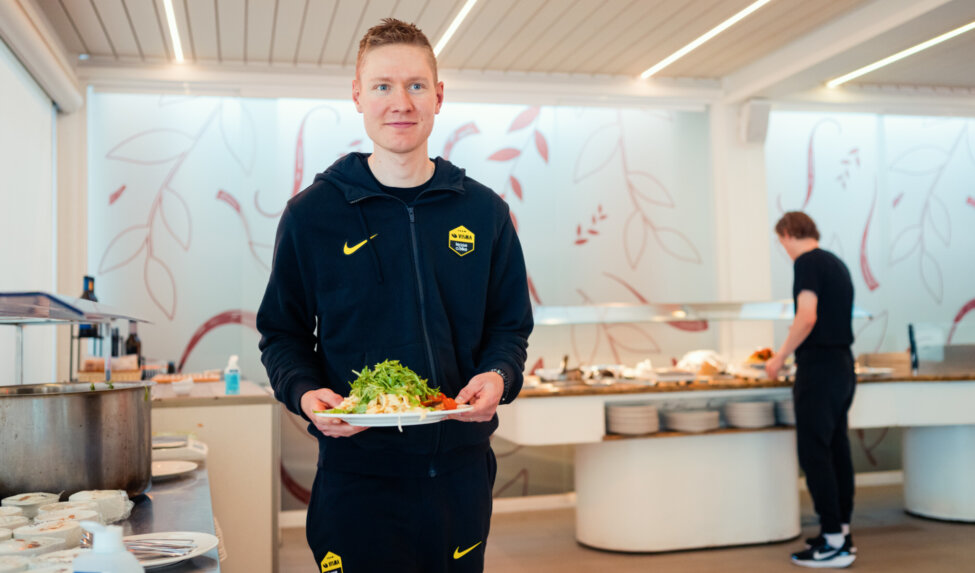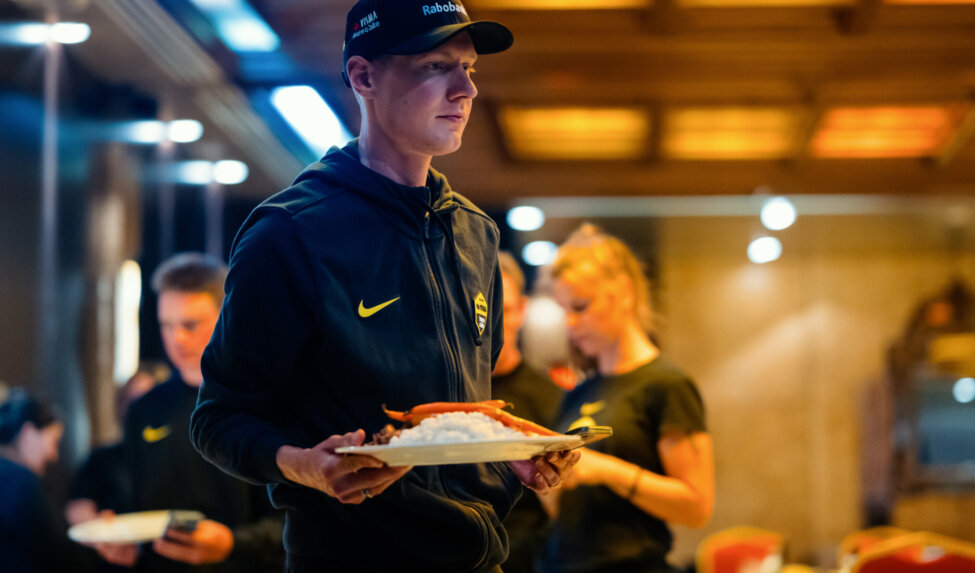How to keep your performance nutrition on track while traveling
As our riders make their way to Canada, it’s the perfect time to dive into how to manage your nutrition while on the go. For many athletes, traveling is part of the job. International tournaments, altitude training camps, and races across the globe are exciting opportunities, but they also bring serious disruption to your body’s rhythm and recovery. If you’re not careful, long-distance travel can undo weeks of training, throw off your nutrition, and leave you feeling off your game before you even step on the start line. But it doesn’t have to be that way.
The Athlete’s FoodCoach team knows that a little planning goes a long way. With smart strategies and a performance-focused mindset, you can stay fueled, hydrated, and ready to train or compete wherever your sport takes you.
Jet lag, hunger hormones, and time zone chaos
One of the toughest parts of traveling for athletes is dealing with jet lag, particularly when stepping on the plane to a place like Canada. Crossing time zones confuses your internal clock, making you feel wide awake in the middle of the night and groggy when it's time to move. It can also trigger unusual cravings, low energy, and digestive discomfort.
This disruption goes beyond sleep. Hormones like leptin and ghrelin, which regulate appetite, can fluctuate in unpredictable ways. You might find yourself feeling hungrier than usual or reaching for sweet snacks you wouldn’t normally crave. At the same time, your glucose metabolism slows down, making it harder for your body to use energy efficiently. That combination can make recovery sluggish and training sessions feel harder than they should.
Why it’s harder to eat well on the road
When you're traveling, food choices often shift from optimal to convenient. Airports, airplanes, hotel buffets, and roadside stops rarely cater to an athlete’s needs. Fresh vegetables, lean proteins, and slow-digesting carbs are often replaced by processed snacks, sugary drinks, and salty meals that leave you bloated and undernourished.
If our riders approach race day, they may be reducing fiber-rich foods to prevent gut distress. This can help performance, but it also removes a key source of hydration and digestive support. Without proper replacements, energy and recovery can start to suffer.
Dehydration creeps in quickly
Air travel creates a perfect storm for dehydration. The low humidity inside airplane cabins accelerates fluid loss, and athletes often drink less while flying than they would during a typical training day. Even small levels of dehydration can impair focus, increase perceived fatigue, and slow recovery. In many cases, what feels like hunger is actually your body’s way of signaling thirst.
If you’re also traveling to a hot climate or higher altitude, your hydration needs to increase even more. Combine that with lower availability of fruits and vegetables, and it’s easy to arrive already behind on fluids.

Your immune system needs support too
Travel puts stress on more than just your muscles. It also affects your immune system. Long flights, disrupted sleep, exposure to crowds, and unfamiliar environments all weaken your natural defenses. For athletes, this creates a window of vulnerability, especially in the days immediately after arrival.
Research shows that respiratory infections are more common among athletes who travel internationally. Even a mild cold or sore throat can disrupt a training block or reduce performance in competition. Supporting your gut, prioritizing sleep, and staying hydrated are key steps in protecting your immune health on the road.
When to eat matters just as much
It’s not only what you eat that matters. When you eat plays a crucial role in how well your body functions. Your internal clock helps regulate digestion, blood sugar, and appetite. When that clock is thrown off by a new time zone, your body may not know whether it’s time for breakfast or dinner. This can lead to discomfort, poor sleep, and sluggish energy levels. For athletes, it also means that fueling sessions may not match up with your body’s readiness, making it harder to perform and recover at your best.
Here's how to support your performance while traveling
Despite all these challenges, travel doesn’t have to derail your nutrition. With a few practical strategies, you can stay in control of your performance.
1. Start by planning ahead
Before your trip, plan your nutrition during your flight beforehand. Our riders use the FoodCoach app, a great tool to plan your nutrition, while supporting your performance goals. Plan a balanced pre-flight meal with protein, complex carbs, and some color from fruits or vegetables, and prepare this before taking off. Pack portable snacks, that include a mix of protein, fiber (depended on the day of the race), and healthy carbs, such as this on-the-go FoodCoach snack recipe. Bring along enough drinks to support your hydration level.
2. During your flight
Aim to drink 500 mililitres of water before take-off, and about 250 mililitres per hour of travel. Skip the alcohol and go easy on the caffeine, both of which dehydrate and can interfere with sleep.
3. Once you land
Try to align your meals with the local time zone as quickly as possible. Even if you're not hungry, eating breakfast at your destination time can help reset your internal clock. This step alone can accelerate your adjustment to the new schedule and reduce jet lag.
4. Focus on the meals around your training
If your meal routine feels chaotic, focus on your pre- and post-training nutrition. Make sure to reach carb targets before training. The FoodCoach app gives you an overview of your personal needs without all the guesswork. After training, make sure to eat something within 30 to 60 minutes. Even if you start small with a banana, some chocolate milk or a granola bar, which are all quick, effective options. Try to follow this up with a carb- and protein-rich meal. This habit can make a big difference in keeping your body on track when everything else feels off.
With the right mindset and a few key habits, you can keep your nutrition solid, and your recovery smooth no matter where you are in the world. The athletes who do this well are the ones who show up ready not just to compete, but to win.
Pro tip: Fuel your goals with the FoodCoach app. Your secret ingredient to peak performance. Get a personalised nutrition plan that adjust to your daily reality, where in the world you decide to be!










